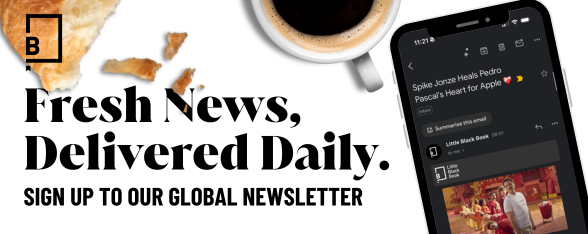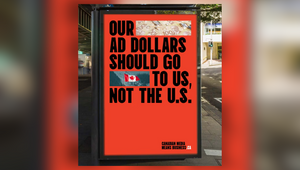
From Skepta to Bad Gyal, Havana Club International is Tapping into Local Street Culture to Ignite a Global Party

“It’s very difficult to explain, but there is something special in Cuba…”
Christian Barre and Anne Martin have been all over the world with French drinks giant Pernod Ricard. Between them, they’ve covered off Spain, Switzerland, Australia, Canada and Mexico - but the vibrant and energetic island nation of Cuba has cast a very potent spell on them both. Christian has been CEO at Havana Club International since 2017 and Anne has been global marketing director since 2020 - and the pair positively crackle with delight and enthusiasm when they talk about their experiences living and working in Cuba.It turns out that ‘rum ad’ imagery isn’t a million miles from the truth.
Unsurprisingly, that personality and atmosphere that emanates from Havana’s streets seep into the brand itself - the two are inseparable.
Indeed, the brand’s slogan is ‘el Ron de Cuba’. Havana Club International is a pioneer when it comes to bringing Cuban rum to the world. It’s a 50-50 co-owned venture between French group Pernod Ricard and Cuban state venture Cuba Ron S.A Corporation. It’s been in existence since 1993, blazing the trail for Cuban rum. It’s one of the biggest rum brands in the world - excluding the USA, due to its long-standing trade embargo. In Cuba, the brand is a source of pride and Pernod Ricard employees talk of being greeted enthusiastically by strangers on the street who spot their Havana Club t-shirts.
From a product perspective, there’s a great deal of pride too. Christian reveals that Cuba takes rum production incredibly seriously. There are just a handful of rum maestros working in the country, people who have mastered every part of the rum creation process - and out of a dozen, Havana Club has exclusive access to four. The maestros meet to innovate, maintain standards and improve and promote Cuban rum collectively (as Cuba competes with other rum centres like the Caribbean, Brazil and South Africa, which have their own particular methods, ingredients and processes).
“I think there's this richness of the expertise from the maestros, which is crucial in the success of Havana Club and Cuban rum, specifically,” says Christian.
That spirit of the Cuban streets infuses and informs so much about the brand - and gives their current marketing strategy a bit of context. These days, the focus isn’t just on the brand’s Cuban heritage - instead, the team wanted to make the brand relevant at a street level around the world. That shift happened about five years ago when the team noticed that hipster culture was getting stale and street culture was on the rise.
“The team saw that if we wanted to recruit the next generation of rum drinkers, we had to acknowledge this shift,” explains Anne. “At that time, you know, there were some question marks; will street culture stay here for a long time or not? And a couple of years later, it is the main cultural movement. So I think the team could really identify what was at that time an emerging trend. That has shifted the global marketing strategy and the key initiatives, so very much driven by what we call a ‘collaboration model’.”
Appropriately enough, given the team’s love and passion for Cuba’s own vibrant street culture, it seemed a way to tap into a relevant trend while still staying true to the brand’s cultural roots, if more implicitly than literally.
“The more we were digging into the subject, the more we realised that, in fact, when you speak about street culture, it's super broad. But we saw a clear connection with what's happening in Cuba, the real day-to-day cultural life in Cuba, which is very much influenced by some by the street. It's really part of the DNA of the brand,” explains Christian.
In the first year, they had to lay the groundwork to build credibility and legitimacy, partnering with smaller streetwear brands and such. That’s then allowed the brand to get in with bigger artists - since 2019, they’ve partnered with the UK’s Skepta, who has helped Havana Club create a limited edition inspired by his Nigerian roots.
And as the brand looked to the streets, they also found their marketing strategy becoming less globally homogenous and more about meeting people where they are. That meant recognising that street culture in Spain is different to street culture in Canada, which again is different to street culture in the Netherlands or China. Hence they’ve been working with the likes of Frenna, a Dutch-Ghanaian artist who is huge in the Benelux region of Europe, and Spanish singer Bad Gyal.
“I think also it was acknowledging that it's more and more difficult to only do global campaigns. There is some consumer expectation to be more locally relevant,” explains Anne. “So we've got, for instance, our global campaign, which is called Cuba Made Me, but on top of that, we believe it's important to do things that are more locally and culturally relevant and that's why we are working with our key markets to bring many collaborations to life.”
Cuba’s character is a touchstone for the brand, even as it evolves. “Cuba, as a country, has got very rich imagery. It may be different depending on your age and when you are living, but there is an image associated with Cuba,” says Anne. “There is something that I have in mind when it comes to Cuba as a country of origin which is the strength of the country’s personality. People can feel this creative energy in Cuba. You know, because it's a country where people have fewer limited resources and they have to do with what they have. But despite limited resources, they will always find a way and they always stay positive and smiling.”
With both its rich heritage and cutting edge cultural strategy, Havana Club International is well-positioned for what Christian says is a booming interest in all things rum. Dark and spiced rum, in particular, are picking up and the sub-sector is seeing an influx of new boutique brands entering the market. That, says Christian, is keeping the market dynamic, fuelling interest in rum generally - and keeping Havana Club on its toes. In recent years, other Cuban rum co-ventures have sprung up on the international market and Christian says it’s great for Cuban rum and great for Havana Club.
The covid-19 pandemic has also punched up the rum sector in curious and unexpected ways. Christian says that the lockdown trend for home cocktail making led people to discover the spirit - and now they’re returning to bars with a new penchant for rum. Moreover, the social associations with rum as a party drink mean that the team has high hopes for the post-pandemic landscape as people reconnect and rediscover their inner barflies and party animals. As a reflection of this, Havana Club’s events marketing is back and as energetic as it’s ever been - and they’ve also launched a recent initiative ‘Party Makers’, which is all about celebrating and acknowledging the people who contribute to the party industry, whether bar owners or festival organisers.
“People want to get back together and it’s true that the rum category is very approachable, very social - and also a bit more gender-neutral than a category like whisky,” says Anne. “I think we’ve got, in our range, so many options that can meet consumer expectations.”
So the outlook is exciting but not without challenges. As well as new challenger brands peppering up the scene, Christian also points to the looming global issues facing almost every brand in every sector right now, relating to supply chains and rising food prices. But with a great deal of work done in innovation and sustainability Christian is confident that Havana Club will be able to ride out the bumps. He also says that rum’s future success is dependent on sufficient supplies of premium dark rum - Cuba and Havana Club in particular have been building ample inventories.
But this is a rum from the streets of Cuba. As Anne points out, the attitude that’s prevalent in Cuba is one of positivity so a brand like Havana Club International isn’t about to let anything stop the party. More collaborations are due to be announced and Anne says that the brand has lots of exciting plans in store for the summer.















